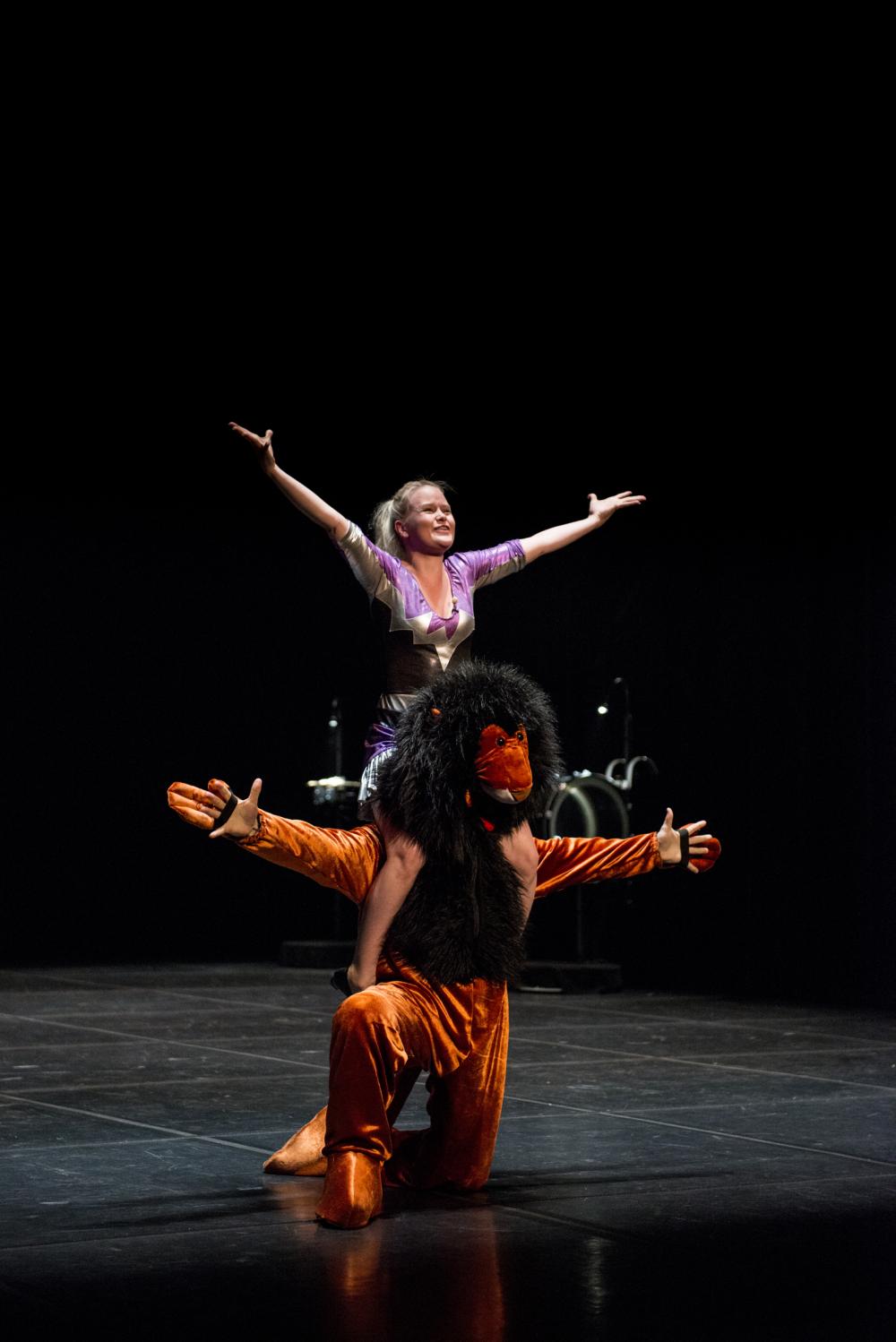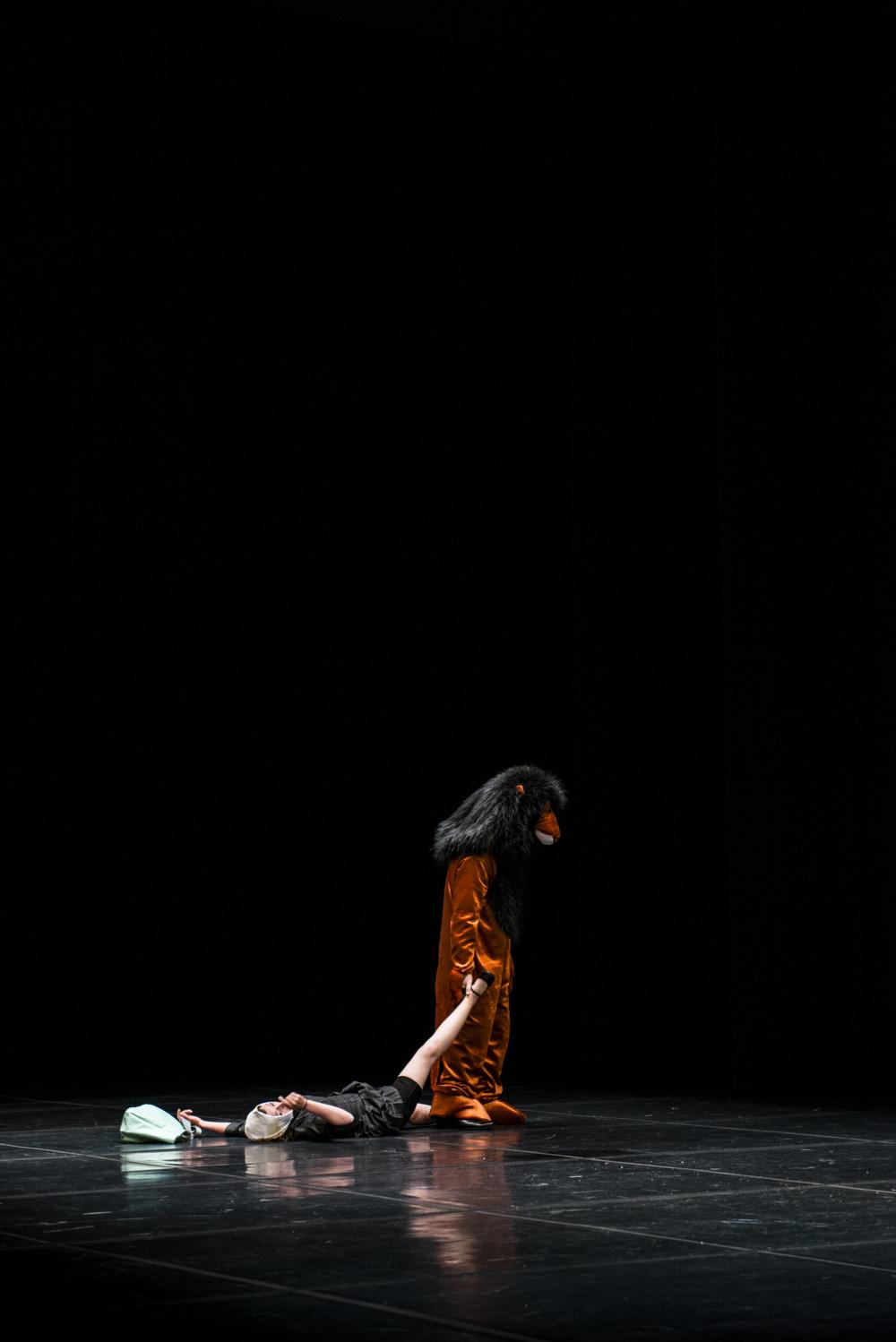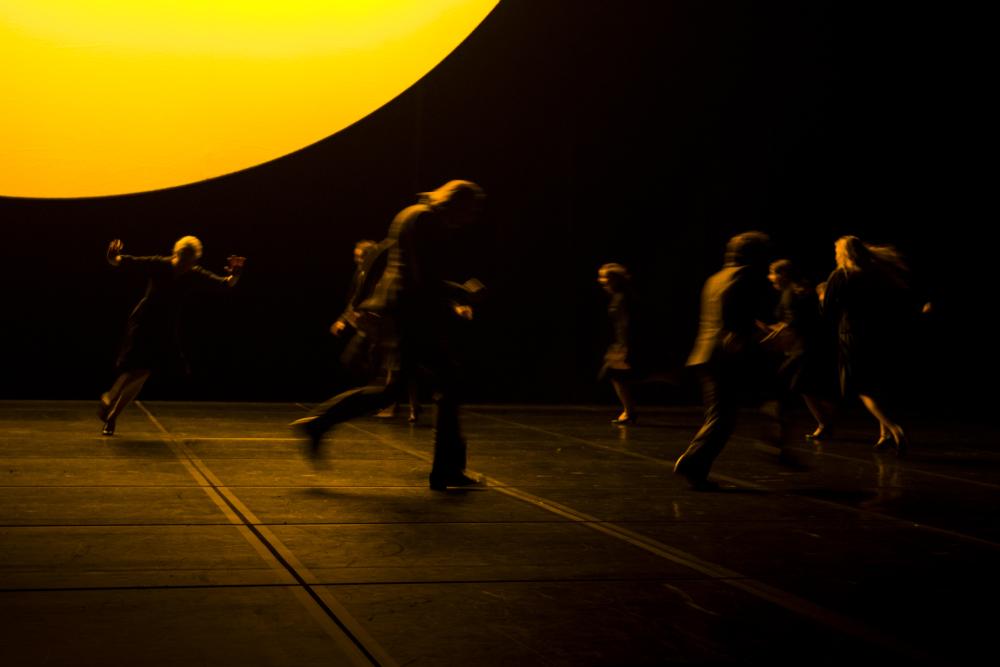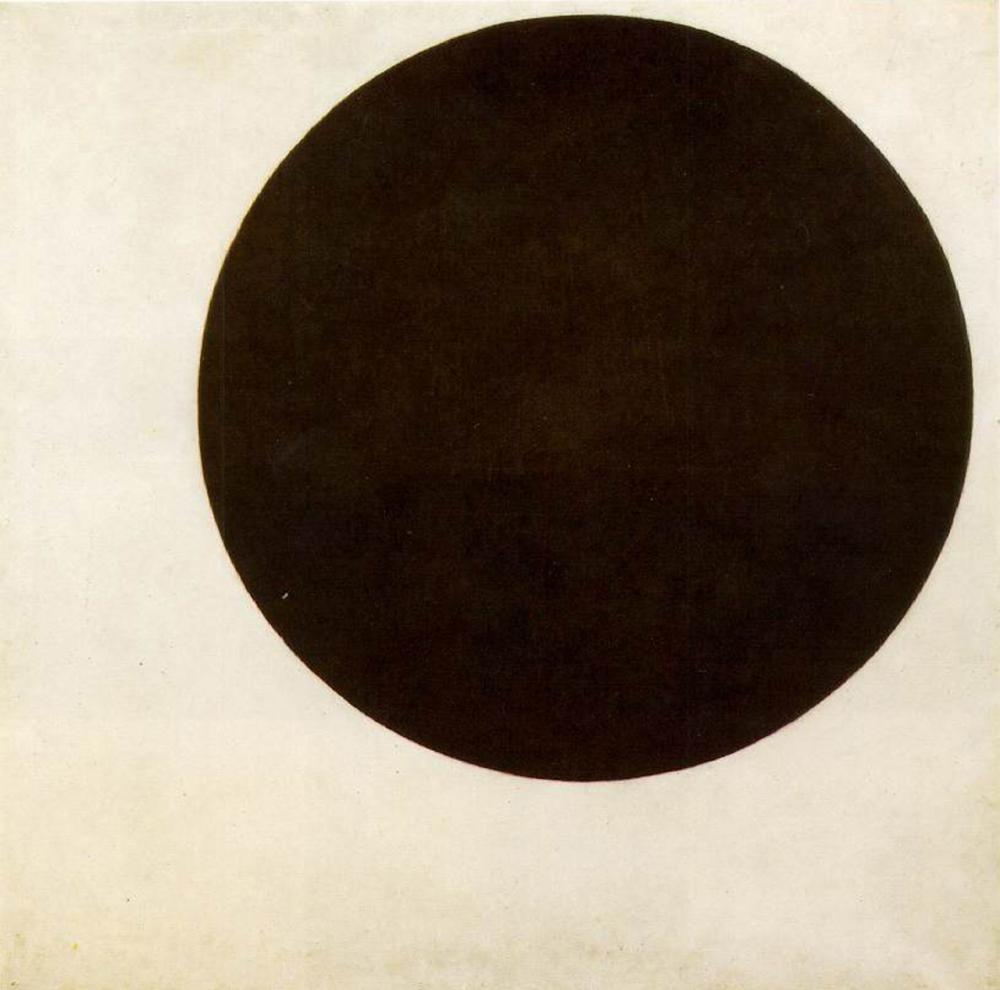H, an incident
Walking drums and trumpets
The 'H' in H, an incident refers to the world, life and work of the twentieth-century Russian writer Daniil Harms (or Charms) (1905-1942). Harms was the author of a remarkable body of work of which hardly anything was published during his lifetime, except for the children's books he wrote for his livelihood. It was only after Perestroika that his work finally surfaced in full. It consists mainly of very short, utterly absurd stories in which Harms always tries to dig down to the bedrock. His humour and violence remind us of Monty Python, while the absurd realism he portrays is often reminiscent of the madness we experience in our daily lives. Harms loved mathematics and the Kabbalah, was a fan of Sherlock Holmes, and was looking for the essence of things, for the truth that might be discovered in any one detail: a small incident could suddenly reveal the true nature of things. The Stalinists regarded Harms’ highly non-conformist behaviour as dangerous and subversive. He was imprisoned several times and died of starvation in a psychiatric institution, just one of thousands of residents of Leningrad who did not survive the three-year long blockade of their city by the Nazis.
H, an incident is the first musical-theatre production by theatre-maker and artist Kris Verdonck. The music includes Russian children's songs arranged by the composer Jonas Sen in collaboration with Vladimir Jóhansson. The choir consists of six Icelandic girls led by the singer and dancer Erna Omarsdottir. These female creatures can assume all kinds of guises, from girl to old woman. The actor Jan Steen is 'the man on the roof’, the incarnation of Harms, the author, the man who looks and describes, who wonders and philosophises.
Several musical instruments move among the abstract props and living beings. Brought to life by those famous organ builders the Decap brothers, 'drums and trumpets' walk about freely in Harms' absurd world, in which objects and furniture, cats and people communicate. ‘Art,’ Harms said, ‘is a cupboard.’
‘L’absurde, c’est la raison lucide qui constate ses limites.’ – Albert Camus
concept and direction Kris Verdonck | dramaturgy Marianne Van Kerkhoven (Kaaitheater) | music composition Jónas Sen, Valdimar Jóhansson | creation and coaching choir Erna Ómarsdóttir | performers Jan Steen (researcher at KASK / School of Arts, Ghent), Marc Iglesias, Jeroen Vander Ven | Icelandic choir and performers Erna Ómarsdóttir, þyrí Huld Arnadóttir, Thorunn Arna Kristjansdóttir, Brynhildur Gudjonsdóttir, Katrín Gunnarsdóttir, Sigríður Soffía Níelsdóttir | costume design An Breugelmans | technical coordination and light design Jan Van Gijsel | assistant director Kristof Van Baarle | technique Marc Dewit, Kaaitheater | sound Valdimar Jóhansson | assistant director Kristof Van Baarle | music instruments Decap Herentals | robotics and system integration Culture Crew | software development iMinds-IBCN | production A Two Dogs Company (Hendrik De Smedt, Karen Verlinden, Lotte Vaes, Sylvia Picard) in collaboration with Shalala (Erna Ómarsdóttir & Valdimar Jóhansson), Kunstenfestivaldesarts and Kaaitheater | produced by ATDC, Kunstenfestivaldesarts (BE), Kaaitheater (BE), Steirischer Herbst (AT), Göteborgs Dans & Teater Festival (DK) | co-produced by Spring Festival (NL), Théâtre national de Bordeaux en Aquitaine (FR) | with the support of the Flemish Authorities, the Flemish Community Commission, the Brussels-Capital Region, NXTSTP, iMinds Art&D program | thanks to National Theatre of Iceland, Department of Information Technology at Ghent University (Stefan Bouckaert, Bart Jooris), Zinnema
Jan Steen is researcher at KASK/School of the Arts Ghent. H, an incident is part of his research project ‘L’être et le jouant – Het zijn in het spelen’, funded by the Research Fund of the University College Ghent.
this project is co-produced by NXTSTP, with support of the Culture Programme of the European Union



